Resource Center
The Transit Workforce Center is pleased to host a curated collection of publications and other materials to assist stakeholders engaged in transit workforce development. The Resource Center includes case studies, training materials, research reports, and other materials of interest, including publications produced by federal government agencies, transit organizations, and independent research entities. Resources may be filtered by topic, resource type, and transit mode. This TWC blog post explains how to use the Resource Center.
We are continuing to update the Resource Center regularly. Please contact us via the Request Help menu option if you would like assistance using the Resource Center or are looking for resources on a particular topic. We also welcome suggestions of topics or specific resources to add.
Content in external resources linked from the Resource Center is solely the responsibility of the resource authors and does not necessarily reflect the perspectives of or endorsement by the Transit Workforce Center.
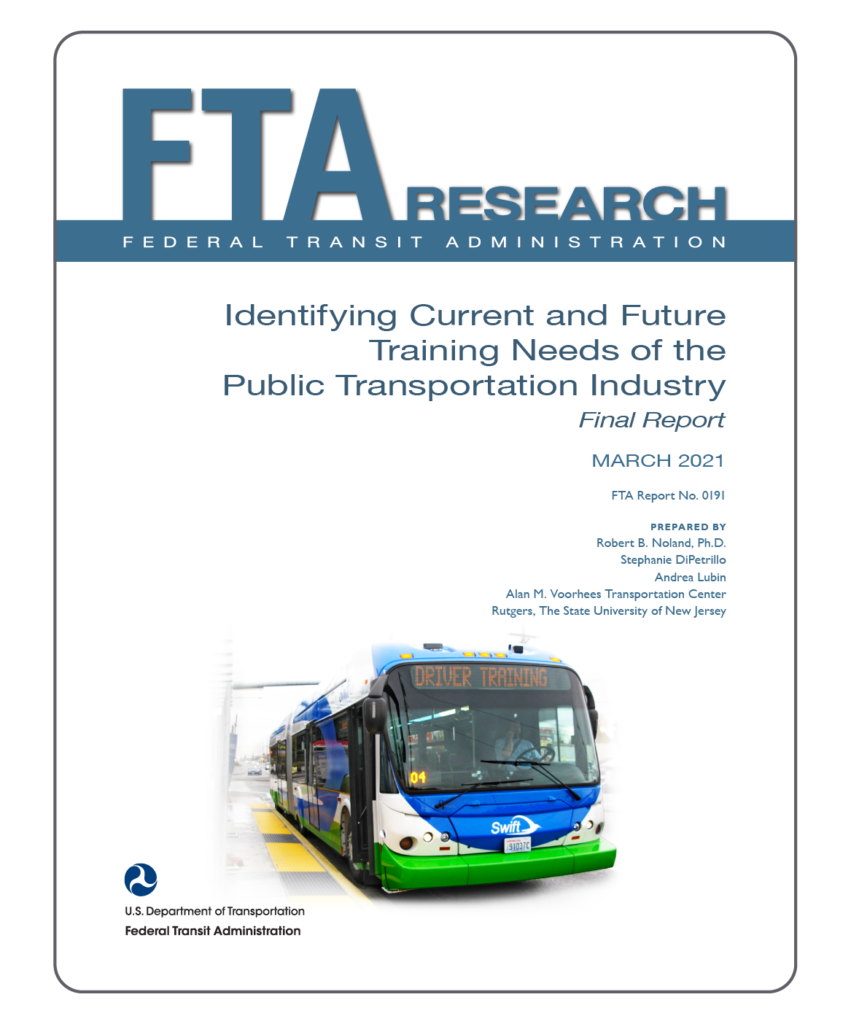
Identifying Current and Future Training Needs of the Public Transportation Industry
This report documents a study commissioned by the National Transit Institute (NTI) as part of its work to address training needs. The study investigates skills gaps among the workforce of the U.S. public transportation industry, identifies strategies to address those gaps, and explores approaches to more successfully recruit and retain the full spectrum of the transit workforce, from frontline to technical to professional staff.
Federal Transit Administration; National Transit Institute
June 2021
LEARN MORE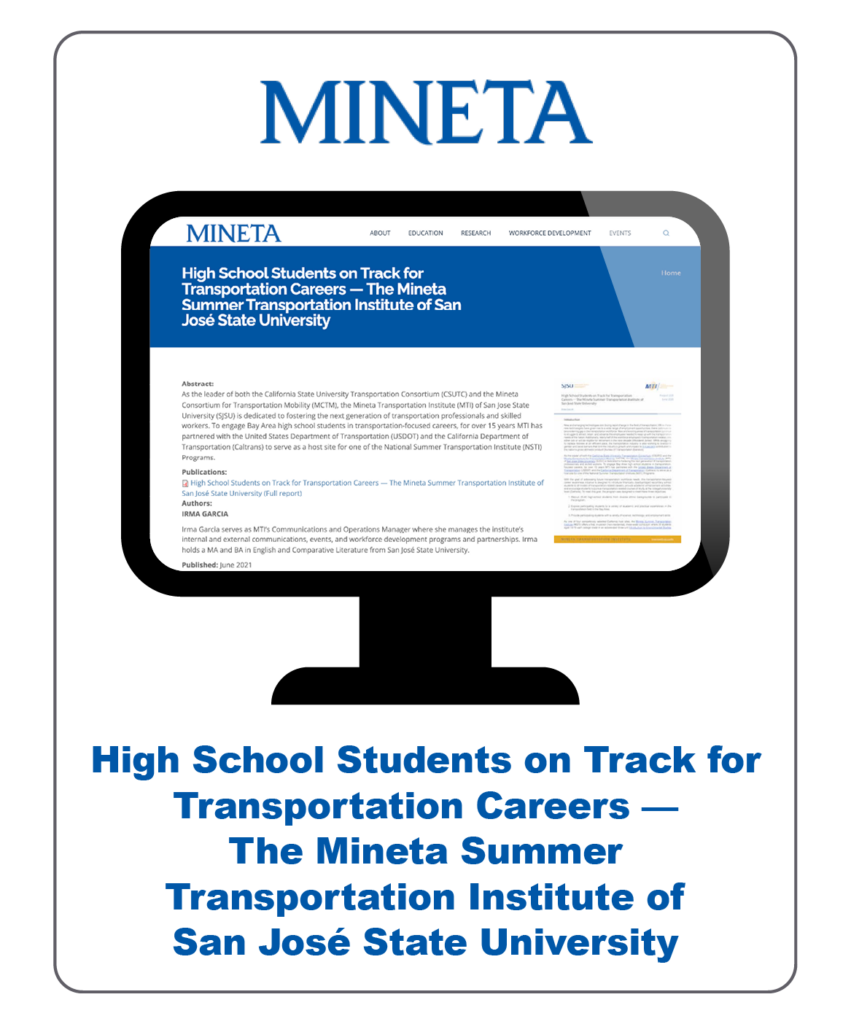
High School Students on Track for Transportation Careers
This report provides an overview of the Mineta Summer Transportation Institute, one of the National Summer Transportation Institute (NSTI) Programs, which recruits high-school students, exposes them to a variety of academic and practical experiences in the transportation field in the Bay Area, and provides participating students with a variety of science, technology, and employment skills.
Mineta Transportation Institute
June 2021
LEARN MORE
This report provides an overview of the Mineta Summer Transportation Institute, one of the National Summer Transportation Institute (NSTI) Programs, which recruits high-school students, exposes them to a variety of academic and practical experiences in the transportation field in the Bay Area, and provides participating students with a variety of science, technology, and employment skills. The report shares program history, demographics, activities, etc.
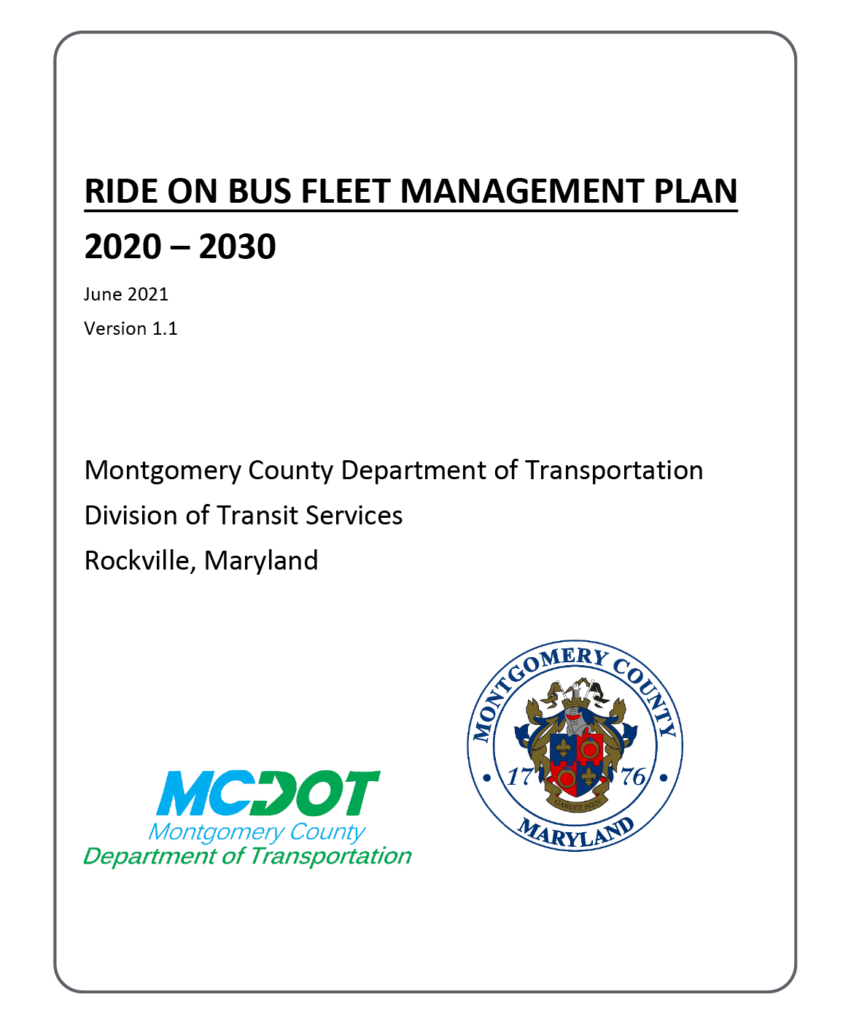
Montgomery County Bus Fleet Management Plan
The Montgomery County Bus Fleet Management Plan features a particularly in-depth zero-emission fleet transition plan, including implementation challenges associated with zero-emission buses and recommendations for fleet transition. The plan also dives into maintenance facilities, energy costs, and future infrastructure needs.
Montgomery County Department of Transportation
June 2021
TOPICS: Low-No, Policy and Planning
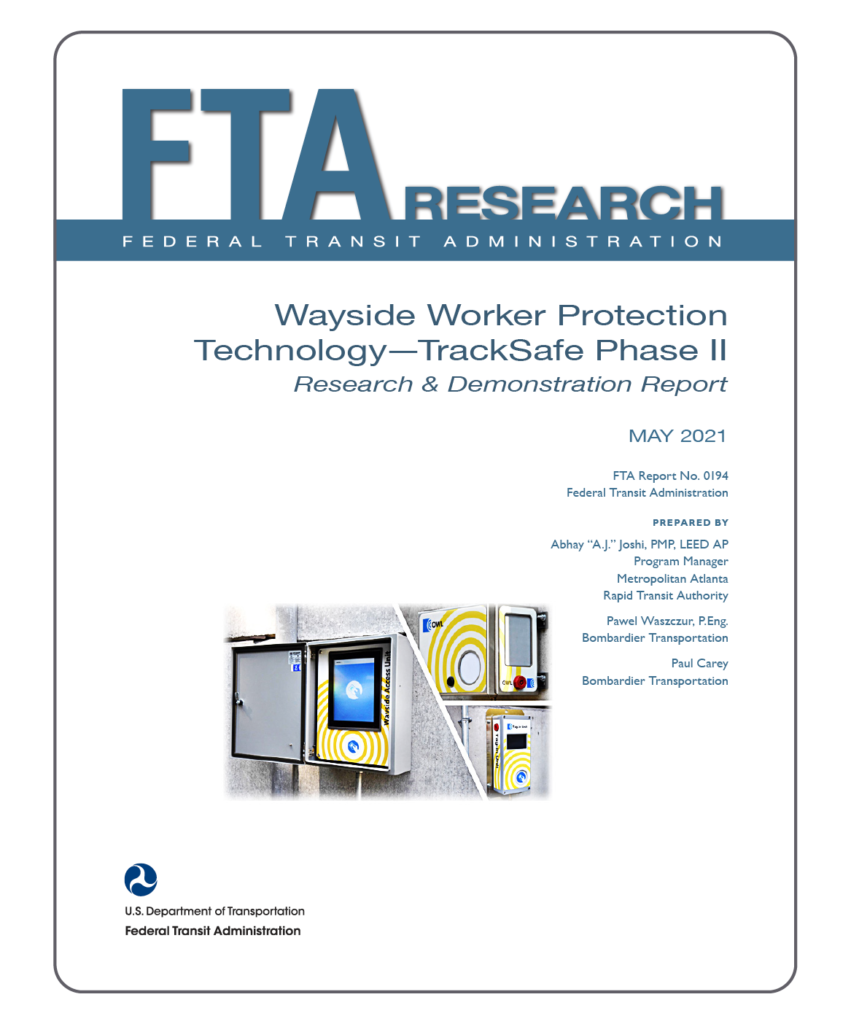
Wayside Worker Protection Technology—TrackSafe Phase II Research & Demonstration (Report 0194)
This report outlines research and demonstration of a roadway worker protection (RWP) warning technology developed by Bombardier Rail called TrackSafe. The system was installed at the Metropolitan Atlanta Rapid Transit Authority (MARTA) and was designed to reduce the hazards of working within a transit rail right-of-way (ROW).
Federal Transit Administration
May 2021
TOPICS: Policy and Planning, Safety and Health
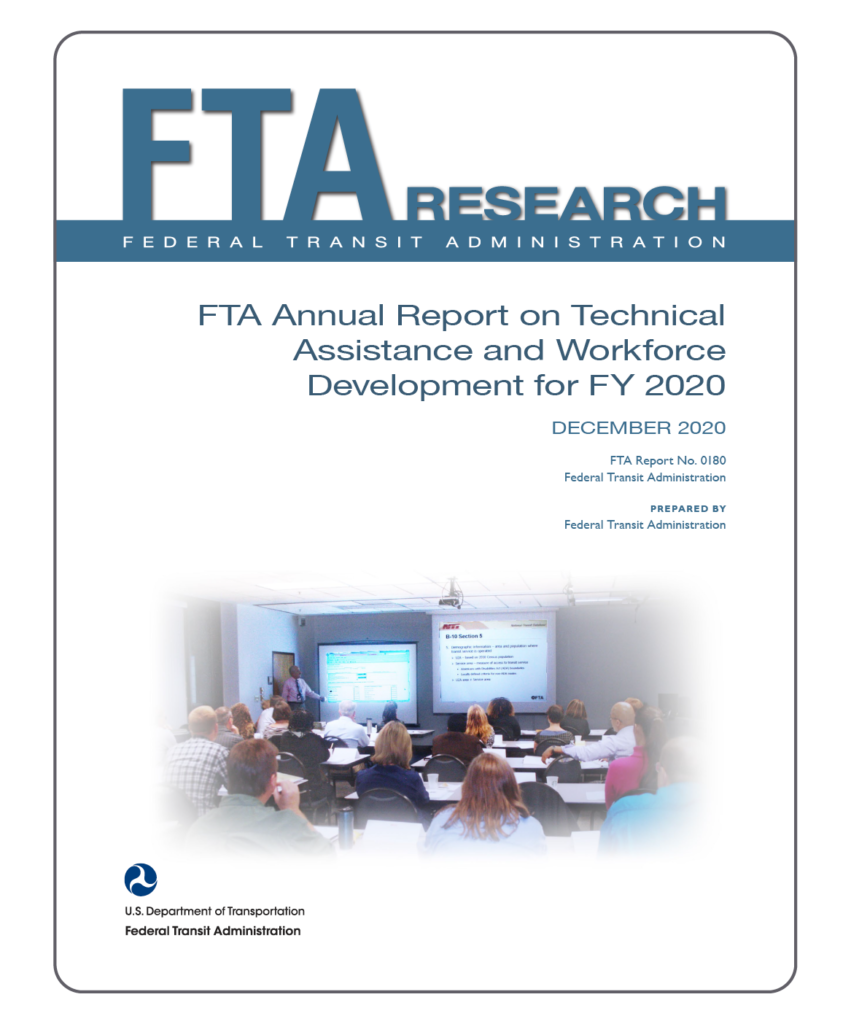
FTA Annual Report on Technical Assistance and Workforce Development for FY 2020
This statutorily required annual report provides information on FTA’s Technical Assistance and Workforce Development Program (49 U.S.C. § 5314). It provides information on technical assistance, workforce development, standards, human resources, and training projects active in FY 2020. The report also includes information on FTA’s process for making upcoming allocations for FY 2021.
Federal Transit Administration
May 2021
LEARN MORE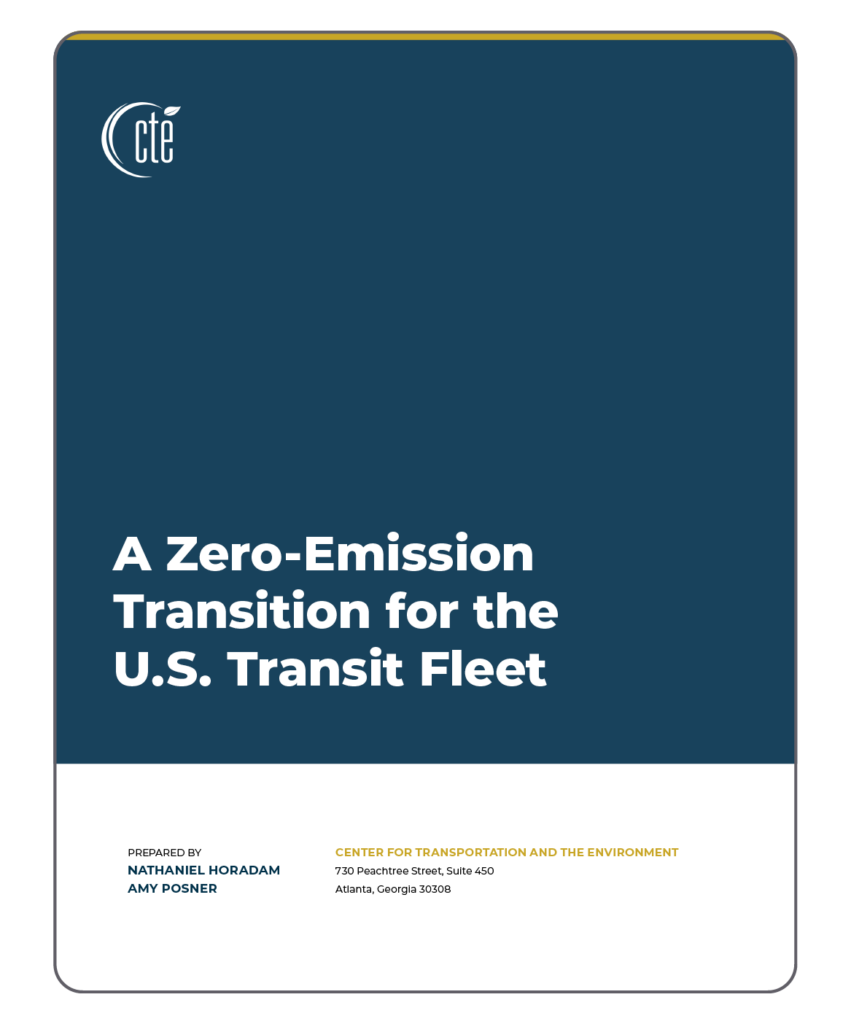
A Zero-Emission Transition for the U.S. Transit Fleet
This report offers a roadmap for federal lawmakers in support of making a complete transition to zero-emission vehicles in transit, including an accounting of estimated agency costs, key assumptions underpinning those figures, acknowledgement of limitations, and workforce development considerations.
Center for Transportation and the Environment
May 2021
TOPICS: Low-No, Policy and Planning, Procurement, Training
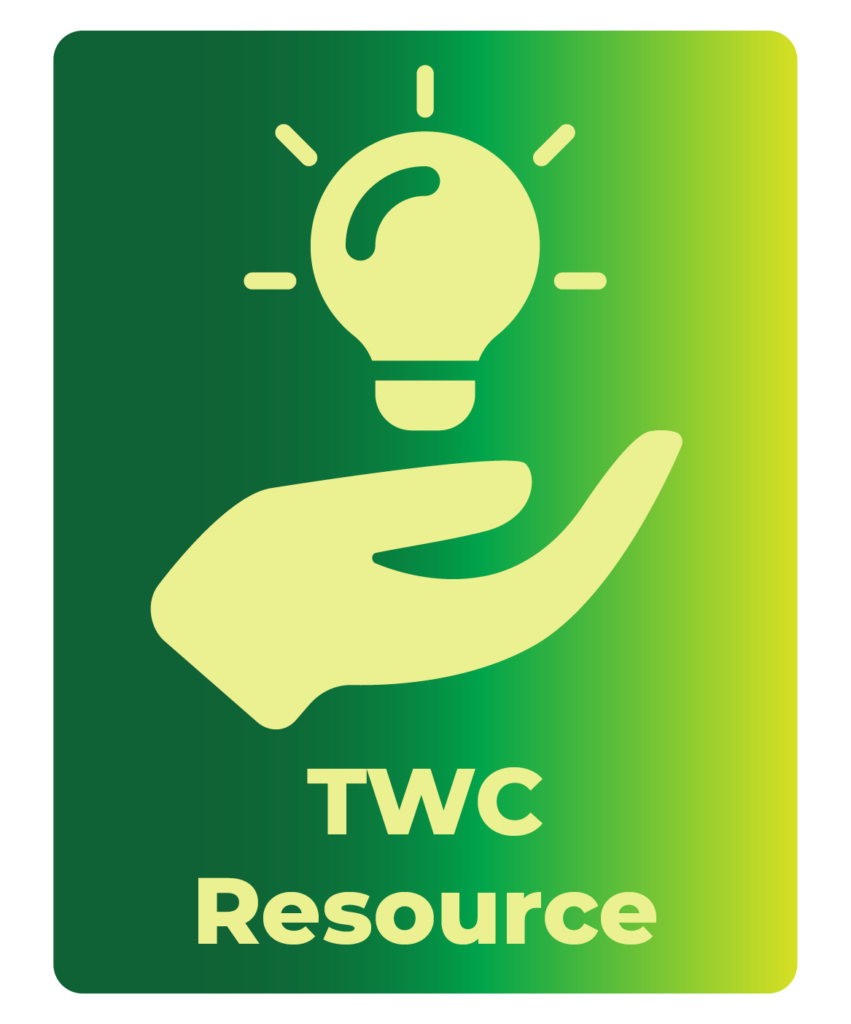
The Transit Workforce: A Path Forward
This plan was developed collaboratively between the Delaware Valley Regional Planning Commission and Temple University as a guide to addressing the systematic challenges facing Greater Philadelphia’s primary transit agencies: SEPTA, PATCO, and NJ Transit. This plan is intended as a guide for possible opportunities for the transit agencies to address identified challenges and themes and prioritized by participating stakeholders as areas that need to be addressed in the short term to ensure long-term success: pipeline development, pathways, and processes.
Delaware Valley Regional Planning Commission; Temple University
May 2021
LEARN MORE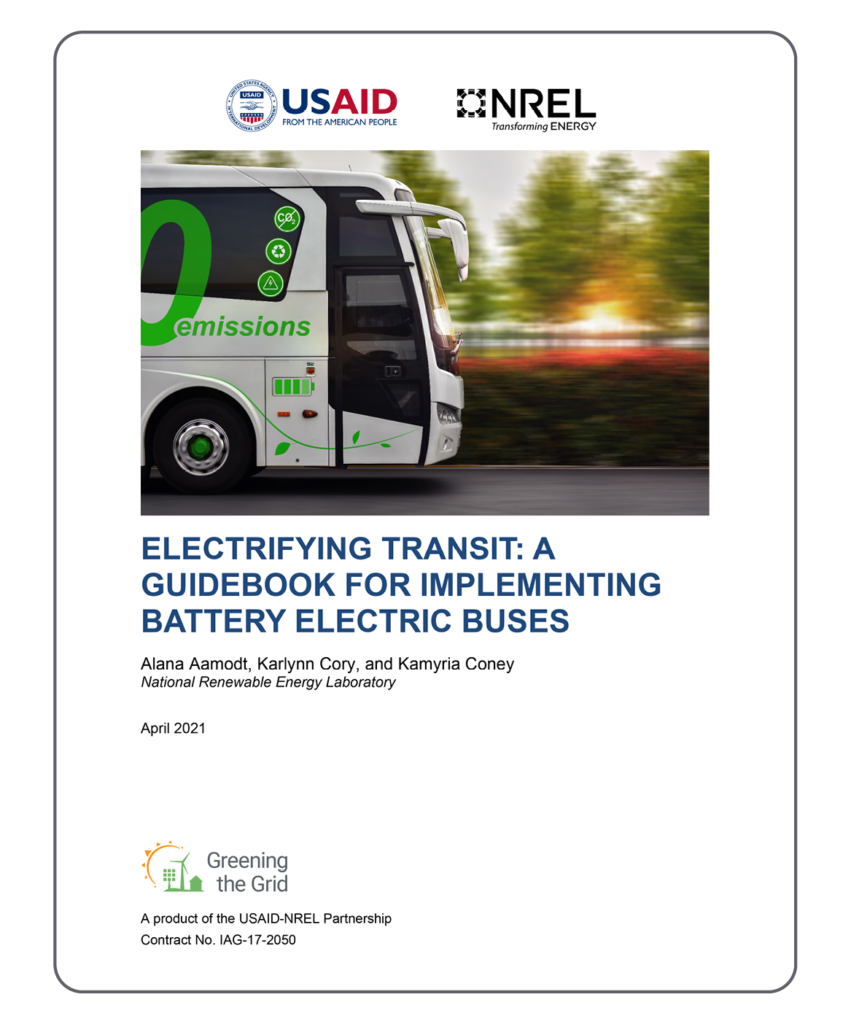
Electrifying Transit: A Guidebook for Implementing Battery Electric Buses
This guidebook assists stakeholders with interest in deploying battery-electric buses by describing decisions and considerations required for successful BEB implementation. It includes information about the benefits and barriers of BEBs, BEB basics, charging infrastructure, operation and maintenance, and costs.
United States Agency for International Development; National Renewable Energy Laboratory
April 2021
TOPICS: Low-No, Procurement






